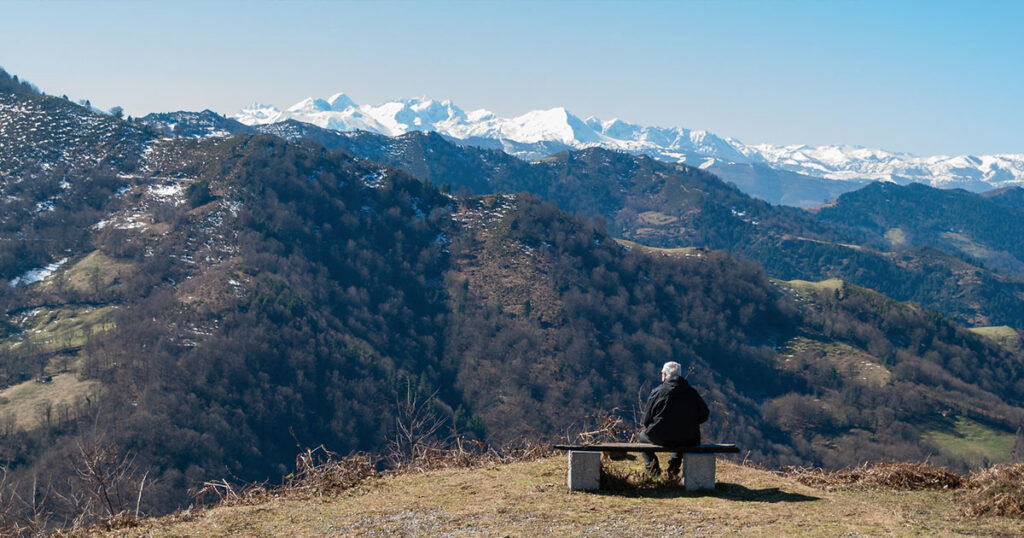
When my father-in-law, Luis, was in his 80s and living alone for several years in a small apartment in Madrid, he had an arrangement with his neighbor, also living alone. The neighbor was 20 years younger than Luis, but he had a degenerative condition that affected his legs, and he used crutches to drag himself around. The adjacent apartments of the two men were laid out so that their bedrooms shared a wall, and from bed each morning Luis would rap on the wall to send a signal that all was well, and the neighbor, a retired goat herder named Caesar, rapped back in answer. That was how they looked out for each other. Rap rap rap. Sometimes Luis would call out, “¿Estás vivú?” Are you alive? “Sí, sí lo estoy,” came the answer.
Luis told me this himself, enacting for me the rap, rap, the raspy voice with the hint of humor, the muffled answer coming through the wall. For these two men in their diminished states, this was gallows humor. Being alive wasn’t something they’d accomplished, like climbing out of quicksand or swimming free of a whirlpool or outrunning a wild animal; rather, it was something they’d clung to for a day longer, a piece of driftwood they hung onto, going in circles in the eddy. They hadn’t survived a danger. They weren’t even running from it. They were still immersed in it. They were waiting, but not for salvation.
Thinking about this detail of Luis’s life reminds me of a message I taped above my desk several years ago. “Happiness is not the goal, survival is.” When I was in danger of feeling defeated by difficulties and afraid of failure, I could remind myself that being alive was what counted. Just being alive. I knew that was the goal.
I don’t really believe life at all costs is the goal. Quality of life is a consideration. Thus when Blackster, my sick cat, deteriorated to a point where pain robbed him of the pleasure of living, I had the vet put him down. When another of my cats, Ella, recently became sick with the same mouth ulcers that had tormented Blackster, I wondered if I would have to put her down, as well. Perhaps not, said the vet after we did a test for feline leukemia, the disease that had done Blackster in. Ella had tested negative. She had a different problem, a respiratory virus, also manifesting itself in ulcers, but not attacking the immune system in the same way, meaning she had a chance to fight it off. For a month, I put antibiotics and anti-inflammatory drops in her food—not the cat chow her brother still ate but a soft goop called “mousse” that came in four flavors. Her brother showed interest in the mousse, too. “That is sick room grub,” I told him, “and you don’t want to be an invalid.” Much better to be well than merely surviving, even if survival is an honorific word—a better flavor—for a routine accomplishment.
As far as Luis and Caesar, was there a plan if no answering rap had come? I don’t know. Luis moved to Asturias, and died here some years later. What happened to Caesar I do not know. Well—I do know, just not the when or the how. Or do I know?


